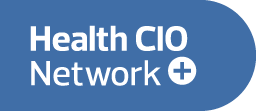


Becoming a chief information officer in the NHS is a big step. To recognise this, the Health CIO Network is putting together a handbook for health CIOs. If you would like to contribute to a chapter, or have a great idea for one, then contact Digital Health managing editor Lyn Whitfield.

We are both blessed and cursed by the speed of change in our chosen field. On the one hand, it is almost impossible to stay on top of everything that may be useful to you in delivering your service. On the other, that pace makes for a very exciting job.
It’s become something of a trope, but it’s worth saying again: in our private lives we are all using technology and data much more. As our staff are becoming increasingly tech savvy, they expect more and are capable of more. And this is going to result in a massive culture change.
My prediction is that next year (if not already) your job will be less about finding the solution for everyone to use and more about helping your colleagues to find the solutions they find most useful. The balance of power will shift – prepare yourself or this may come as something of a shock.
It’s one example of why we, as chief information officers, need to be open to change and continuous learning. The world is evolving, new technology brings new opportunity, but so does cultural change and workforce capability. We need to be prepared so we can support this culture shift rather than blocking it, whether intentionally or unintentionally.
This preparation, this continuous dedication to development and learning, is something all CIOs – experienced and new – need to wholeheartedly embrace. It requires a change in attitude, so it is hard, but luckily things are here (and more are coming) that will help you in this endeavour.
The most notable development is the increasing professionalisation of our field of work. We don’t currently have a profession, and you may ask why we need one.
One argument is that we work in healthcare – if we get something wrong we can contribute to harm or even cause people to die. If we get things right we can improve safety, quality of care and (arguably) introduce efficiencies and savings.
This argument would continue: having assurance that the people doing the job know what they are doing is essential. Professionalism is the route our colleagues – doctors and nurses, finance professionals and project managers – have gone down.
Some of these professions are regulated - meaning individuals are mandated to demonstrate a level of competence before they can do a job - others are not. The proponents of this argument will say that we simply can no longer afford to be a mixed bag of expert informaticians and enthusiastic amateurs. It is no longer amateur night.
A second argument is the opportunity for continuous improvement of the individual – we all have development needs, we never stop learning, and we can learn from others tackling the same problems we are tackling.
Sharing problems and solutions with peers is a great way to hone skills and keep them sharp. A profession is a way of formalising that learning opportunity which, in theory, would help to evolve the profession into what it needs to be to support a modern health and care system.
The third argument is the need to support the development of the workforce. The creation of a profession gives us an identity, a purpose and a way to refine that purpose.
If our staff are increasingly tech and information savvy, how do we educate them to make the best use of those new skills, confidence and enthusiasm? I see informaticians becoming educators, as well as service providers, and the profession is a way to evolve this new role.
There are perhaps 50,000-60,000 informaticians in the NHS. A small proportion, maybe 2,000 of them, are registered with a professional body – and there are a few professional bodies to choose from. These bodies were set up to support groups within the field of informatics: librarians, clinical coders, computer scientists and health informaticians.
But they have historically suffered from lack of funding, voluntary rather than substantive management and administration, variable service quality, lack of connectedness – people just couldn’t see which professional body to join and couldn’t see why they should.
Things are changing. While these bodies still all exist, they have agreed to form a single overarching registration body called the Federation of Informatics Professionals (Fed-IP), which will support individuals to join the most relevant body, helping them to explore and meet their learning needs as well as providing a mechanism to assess and register competence.
This will provide clear benefits for the individual, the organisation and the public. In so doing, our profession will be born. Something similar is happening in the clinical informatics space for our chief clinical information officer colleagues, starting with the formation of the Faculty of Clinical Informatics next year.
The FCI will be a very similar body to Fed-IP but for clinicians. FCI will provide a route for revalidation in addition to granting access to a very similar list of products and services available to Fed-IP members.
Fed-IP will help you to identify and gain new skills and knowledge. The community that created this handbook will help you stay in contact with your contemporaries to understand how the role, your responsibility and hence your learning needs are shifting.
Another zeitgeist that will impact upon you is the move away from a CIO as the purely technical expert to a CIO as an influencer and leader. The leadership programme I went on was a life-changer for me.
The offer Fed-IP makes is a big one. As an individual, whether you are a CIO or a data manager, a software developer or a librarian, Fed-IP will provide a place to help us describe what we think ‘good’ looks like.
It will translate that into a spectrum of capabilities and it’ll help you find the best way to develop where you most need to. It’s an offer that is as applicable to an experienced CIO as it is for someone just starting in a career in informatics.
For instance, Fed-IP will encourage CIOs to demonstrate they are ready to do the job through specialist training programmes such as the CHIME UK programme.
CHIME is an American qualification, aimed at demonstrating your readiness to operate at CIO level. We are currently assessing CHIME’s fitness-for-purpose for the UK market but hope it will be one way to help individuals assure themselves that they are able to do the job well.
As well as helping you and your colleagues to learn, Fed-IP will also be a place to find tools and services to help you do your job – from videos to support a BYOD policy, to lists of accredited apps useful for your diabetes nurses.
Finally, Fed-IP will be a protective blanket. We all make mistakes and Fed-IP will become your union if you are unfairly penalised for taking a decision you are qualified to take but (for whatever reason) get wrong.
At the moment there is no intention to mandate membership of Fed-IP or the FCI for informaticians in health and care. But as Fed-IP gains strength it will prove harder and harder to ignore, particularly for those of us in this most senior of informatics roles.